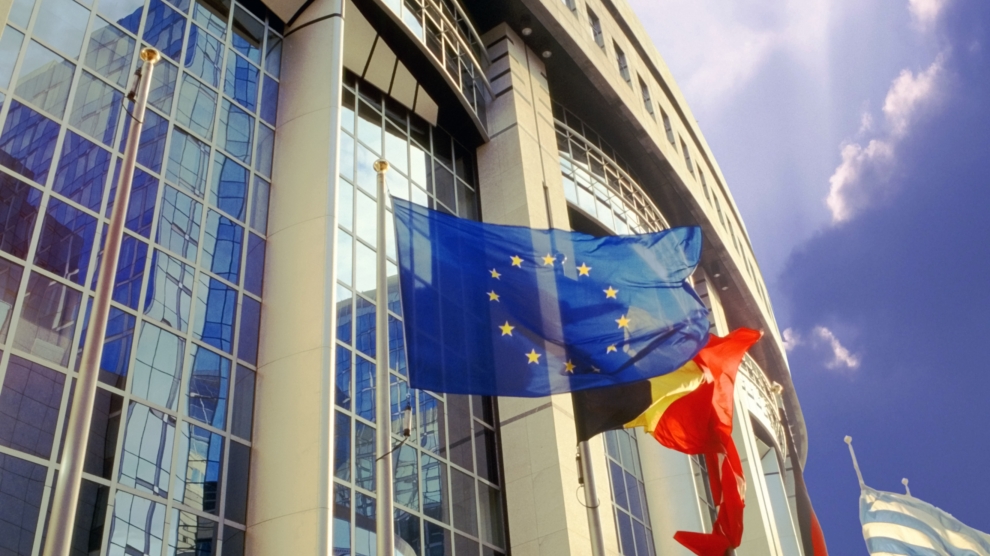Less than 24 hours after European Union leaders hailed a landmark agreement on the bloc’s coronavirus recovery package and next multiannual budget, the European Parliament has signalled that while the budget is a positive step for recovery, it views it as inadequate in the long-term.
Parliament is particularly concerned that long-term EU budget has been cut, just at a time when citizens are calling for an increase in EU investment. Parliament is also unhappy with the fudge over tying funds to respect for rule of law, and cuts to flagship programmes such as the Horizon science programme, InvestEU, LIFE, and Erasmus+.
Commenting on the conclusions of the EU summit, parliament’s negotiators welcomed the 750 billion euros recovery fund – which will be financed by borrowing and distributed partly as grants, partly as loans – but warned that their agreement to the long-term EU budget cannot be taken for granted.
“The recovery instrument is an important step towards a new ambition for the Union: greener, more competitive and digital. This massive borrowing is an historical moment for the European Union, and we should not disregard what just happened. However we regret that the member states decided to entirely abandon the ‘bridge solution’, whose objective was precisely to provide immediate crisis response to the citizens, following the Covid-19 outbreak. In a context where the virus in on the rise again, citizens need certainty. Parliament will continue working hard to ensure that the recovery starts without delays. Furthermore, democratic oversight must be substantially increased: Parliament, as one arm of the budgetary authority will fight to be fully involved in the establishment and implementation of the recovery instrument,” parliament’s negotiators said in a statement.
The picture is much more negative when it comes to the EU long-term budget.
“Parliament cannot accept the proposed record low ceilings as they mean renouncing to the EU’s long-term objectives and strategic autonomy, while citizens ask for more. More European solidarity, more European action in public health, in research and digitalisation, youth, and in the historical fight against climate change. Key programmes to reach these objectives have been considerably shrunk, and lost most of their top-ups under Next Generation EU. We will strive to secure improvements, including higher amounts, on future-oriented multiannual programmes like Horizon, InvestEU, LIFE, Erasmus+. And if our conditions are not sufficiently met we will adopt the programmes on the basis of the existing MFF, as foreseen by the Treaty,” warned the six members of the negotiating team, who represent all of the European Parliament’s main parties.
The negotiating team also renewed their call for the EU to be able to raise its own funds, claimed that a new tax on plastics would not go far enough. Parliament wants a “binding commitment” for the introduction of additional own resources as soon as 2021.
“The compromise is a flagrant missed opportunity when it comes to modernising the revenue side, making it fairer and more transparent. The EU is now allowed to borrow funds but there is no certainty on how the debt will be repaid. Parliament has been clear: the recovery should not reduce investment capacities nor harm the national taxpayer. This is why new, genuine own resources are the solution to repay the common debt,” read the statement.
Additionally, Parliament remains firmly against watering down the mechanism to reduce or suspend EU funding if a member state disrespects the rule of law. Poland and Hungary both claimed victory after the compromise agreed by EU leaders delayed designing a rule of law mechanism.
“This issue should not be put off but addressed now. Parliament has stood ready to enter into negotiations under co-decision to continue building a Europe of fundamental rights. Parliament remains ready to immediately enter negotiations in order to achieve a better agreement for Europe,” the MEPs added.
The European Parliament will have a final say over the 2021-2027 budget, which it must approve before it can enter into force. The current multiannual budget runs out on December 31, 2020.
—
Unlike many news and information platforms, Emerging Europe is free to read, and always will be. There is no paywall here. We are independent, not affiliated with nor representing any political party or business organisation. We want the very best for emerging Europe, nothing more, nothing less. Your support will help us continue to spread the word about this amazing region.
You can contribute here. Thank you.









Add Comment